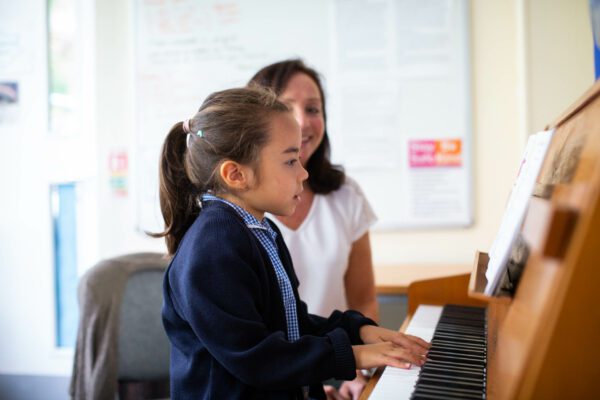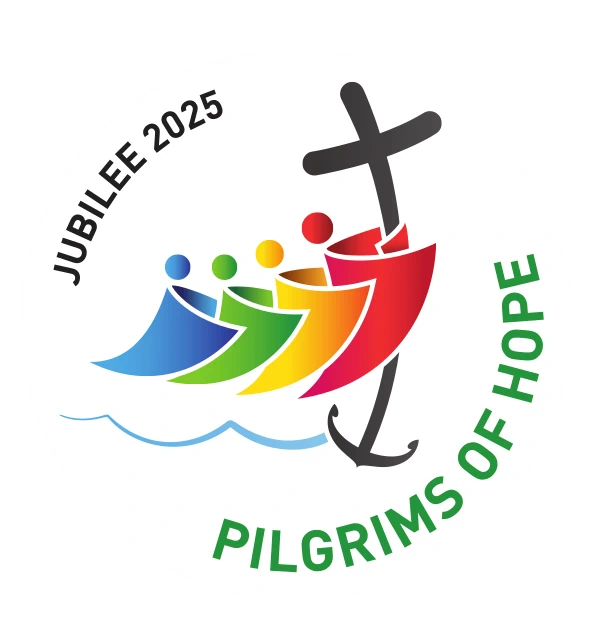Aims & Objectives
The aim of Music teaching at St Mary’s Catholic Voluntary Academy is to engage and inspire pupils to develop a love of music, increase self-confidence and creativity and allow for a sense of achievement through performance with others. We aim to encourage our children to be able to listen to and appraise a wide range of music and begin to compose their own compositions through both improvisation and use of annotation. We develop an understanding of the history of music and explore music from different cultures and ethnicities.
The objectives of teaching Music at St Mary’s Catholic Voluntary Academy are for children to be able to:
- Use their voices expressively and creatively by singing a wide range of songs, chants and rhymes
- Play tuned and untuned instruments musically and have the opportunity to perform in a variety of contexts
- Listen with developing concentration and understanding to a range of high-quality live and recorded music
- Improvise and compose music for a range of purposes using the inter-related dimensions of music
- Begin to use and understand staff and other musical notations
- Appreciate and understand a wide range of high-quality live and recorded music drawn from different traditions and from great composers and musicians
Develop an understanding of the history of music.
How the Subject is Planned
We use the National Curriculum scheme of work as the starting point for our planning in Music but we aim to build the skills we gain in music and the love and appreciation we have for music into the wider curriculum too. We look for regular opportunities for children to perform, listen and appreciate a wide genre of music.
Foundation Stage
Music in the Early Years at St Mary’s is about allowing children to develop the confidence to explore sounds through play. They are supported with this through a balance of child-initiated and adult-directed activities. Nursery rhymes introduce the concepts of rhyme, rhythm and harmony. Children are able to access a wide range of untuned instruments, and are encouraged to find sounds and have fun with them within their environment, both inside and out.
Key Stage One & Two
In Key Stages 1 & 2 key skills, knowledge and understanding of Music are built in to link with cross-curricular themes elsewhere within the curriculum. We ensure children are given the opportunity to perform, listen & appraise, and explore sounds. We place high value on Nativity and Easter performances and wider opportunity performances such as festivals and concerts within our local communities. Children are encouraged to perform both in groups and as soloists.
Teaching Approaches
The learning environment in Music is managed in such a way as to facilitate different styles of learning.
Opportunities are made for:
- whole class teaching
- group work, organised according to appropriate criteria (i.e. ability, mixed ability, friendship, etc)
- one to one teaching (for peripatetic music lessons)
- collaborative and active learning in pairs or groups
- independent learning
Marking, Feedback, Reporting
Ongoing assessments are made of pupils’ work in Music in order to establish the level of attainment and progress and to inform future planning. Formative assessment is used to guide the progress of individual pupils. It involves identifying each child’s progress in areas of the Music curriculum including: singing and performance, listening & appraising, composition and notation.
Cross Curricular
Staff are encouraged to develop cross-curricular links with Music wherever possible and to provide a relevant and meaningful curriculum for pupils.
Performance opportunities within school and the wider community
- Nativity and Easter productions (both instrumental and singing opportunities)
- Summer Show (Year 6)
- Musical Extravaganza
- Global Learning and Music Show
- Show-casing talent in assemblies and class performances
- Instrumental Soloists’ summer show
- St George’s Carol Concert (Stockport)
- Playing for the older generation in Marple
- Lighting of the Christmas tree – Compstall festival, Marple Bridge Christmas festival.
- Bridgewater Hall, Manchester – playing with the Halle Orchestra.
Role of the Subject Leader
The Subject leader has a variety of roles. These include:
- Taking the lead in policy development and quality assuring Music Progression of Skills document, resources and Music plans throughout the school
- Supporting colleagues in their development and implementation of Music and in assessment and record-keeping activities
- Monitoring progress in Music and advising the Senior Leadership Team on action needed; taking responsibility for the purchase and organisation of central resources for Music
- Using release time to support colleagues
- Keeping up-to-date through research and continuing professional development and attendance at Music co-ordinators meetings




